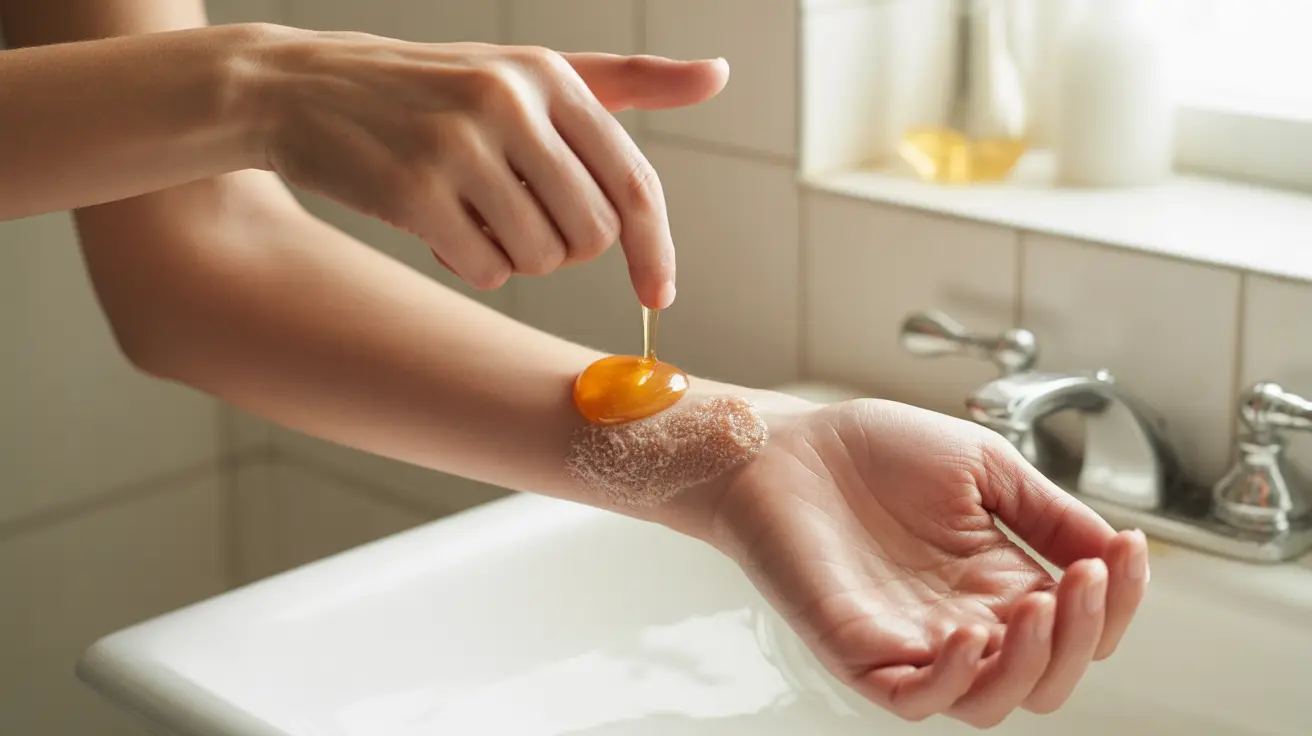Living with eczema can be challenging, but natural remedies like manuka honey offer promising relief for those seeking alternatives to conventional treatments. This special honey, produced by bees that pollinate the manuka bush in New Zealand, has gained attention for its potential therapeutic benefits in managing eczema symptoms.
Understanding how manuka honey works for eczema and learning the proper application methods can help you make informed decisions about incorporating this natural remedy into your skincare routine. Let's explore the science behind manuka honey's effectiveness and how it might help manage your eczema symptoms.
Understanding Manuka Honey's Healing Properties
Manuka honey stands out from regular honey due to its unique composition and therapeutic properties. It contains high levels of methylglyoxal (MGO), which contributes to its powerful antibacterial qualities. The honey also features natural enzymes, amino acids, and other compounds that support skin healing.
The key beneficial properties of manuka honey for eczema include:
- Anti-inflammatory effects that help reduce redness and swelling
- Natural antibacterial action that fights skin infections
- Moisture-retaining properties that help hydrate the skin
- Wound-healing capabilities that support skin barrier repair
How Manuka Honey Benefits Eczema-Prone Skin
Anti-inflammatory Action
Manuka honey's natural anti-inflammatory properties help calm irritated skin and reduce the redness associated with eczema flares. This action can provide welcome relief from the discomfort of active eczema patches and help break the itch-scratch cycle.
Infection Prevention
One of the most significant benefits of manuka honey is its ability to combat bacterial infections, including Staphylococcus aureus (staph), which commonly affects eczema-prone skin. The honey's natural antibacterial properties create an inhospitable environment for harmful bacteria while supporting the skin's beneficial microbiome.
Moisture Balance
Unlike many conventional treatments, manuka honey helps maintain optimal skin moisture levels without causing irritation. It creates a protective barrier that locks in hydration while allowing the skin to breathe, promoting natural healing processes.
Safe Application Methods and Best Practices
To maximize the benefits of manuka honey for eczema, proper application is crucial. Follow these guidelines for best results:
- Clean the affected area gently before applying honey
- Use medical-grade manuka honey with a high UMF rating
- Apply a thin layer directly to the affected skin
- Cover with a clean, breathable dressing if needed
- Leave on for at least 20 minutes or overnight
- Rinse with lukewarm water
Safety Considerations and Potential Side Effects
While manuka honey is generally safe for topical use, it's important to be aware of potential risks and take appropriate precautions. Always perform a patch test before full application and discontinue use if irritation occurs. Those with bee allergies should consult their healthcare provider before using manuka honey products.
Frequently Asked Questions
How does manuka honey help relieve eczema symptoms like itching and inflammation?
Manuka honey helps relieve eczema symptoms through its natural anti-inflammatory properties and ability to reduce inflammation. It creates a protective barrier that soothes itching while its antibacterial components help calm irritated skin and promote healing.
Is manuka honey safe to use for eczema, and what side effects should I watch for?
Manuka honey is generally safe for topical use on eczema, but some people may experience mild stinging or allergic reactions. Those with bee allergies should avoid using it. Watch for increased redness, irritation, or allergic responses, and discontinue use if these occur.
What is the best way to apply manuka honey on eczema-affected skin for healing?
Apply a thin layer of medical-grade manuka honey to clean, affected skin areas. Cover with a breathable dressing if needed, and leave on for at least 20 minutes or overnight. Rinse gently with lukewarm water and pat dry.
Can manuka honey prevent infections in eczema patches, especially from bacteria like staph?
Yes, manuka honey's powerful antibacterial properties can help prevent and fight infections in eczema patches, including staph infections. Its high methylglyoxal content creates an environment that inhibits bacterial growth while supporting the skin's natural defense mechanisms.
What does the current science say about manuka honey's effectiveness for treating eczema?
Scientific research supports manuka honey's effectiveness in treating eczema through its documented antibacterial, anti-inflammatory, and wound-healing properties. Studies have shown positive results in reducing inflammation, preventing infection, and supporting skin barrier repair, though more research is ongoing.
Remember to consult with a healthcare provider before starting any new treatment regimen for your eczema, including the use of manuka honey. While this natural remedy shows promise, individual results may vary, and it's important to develop a comprehensive treatment plan that works best for your specific situation.




